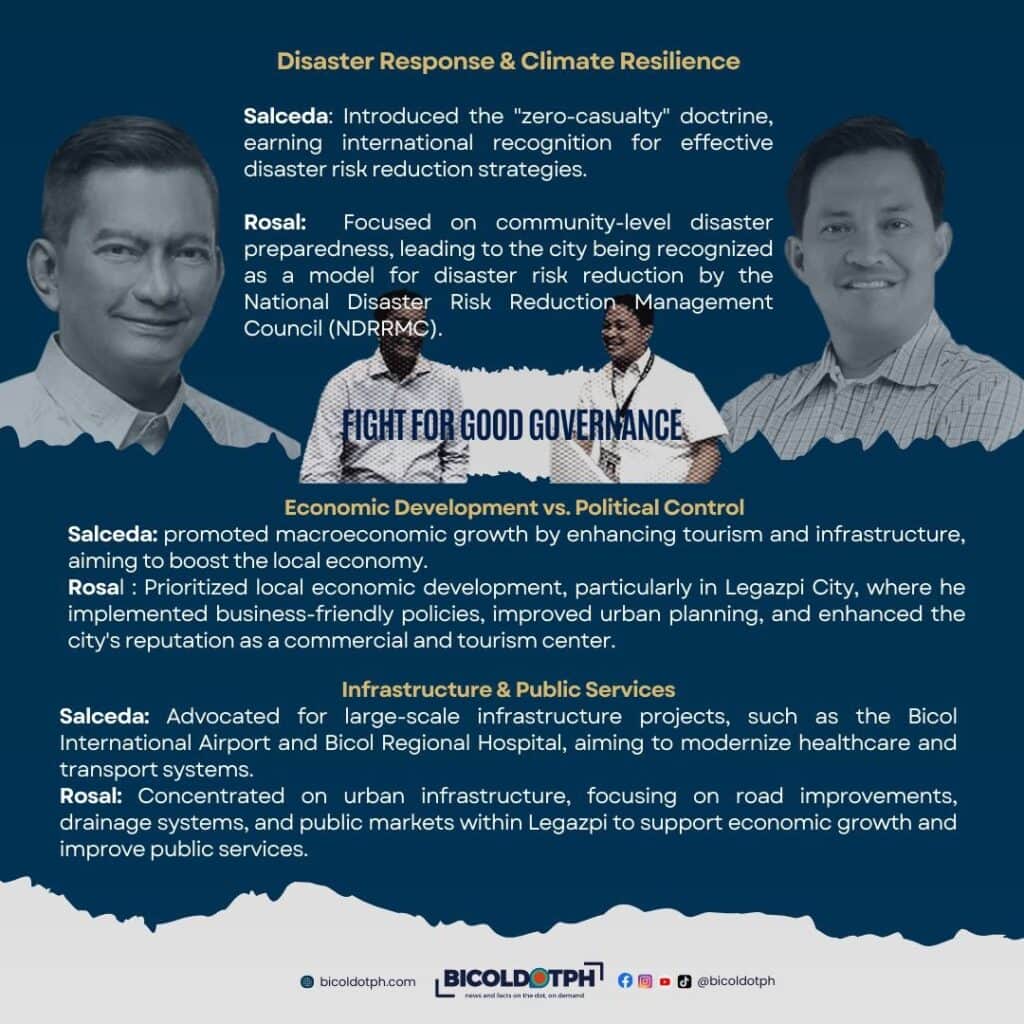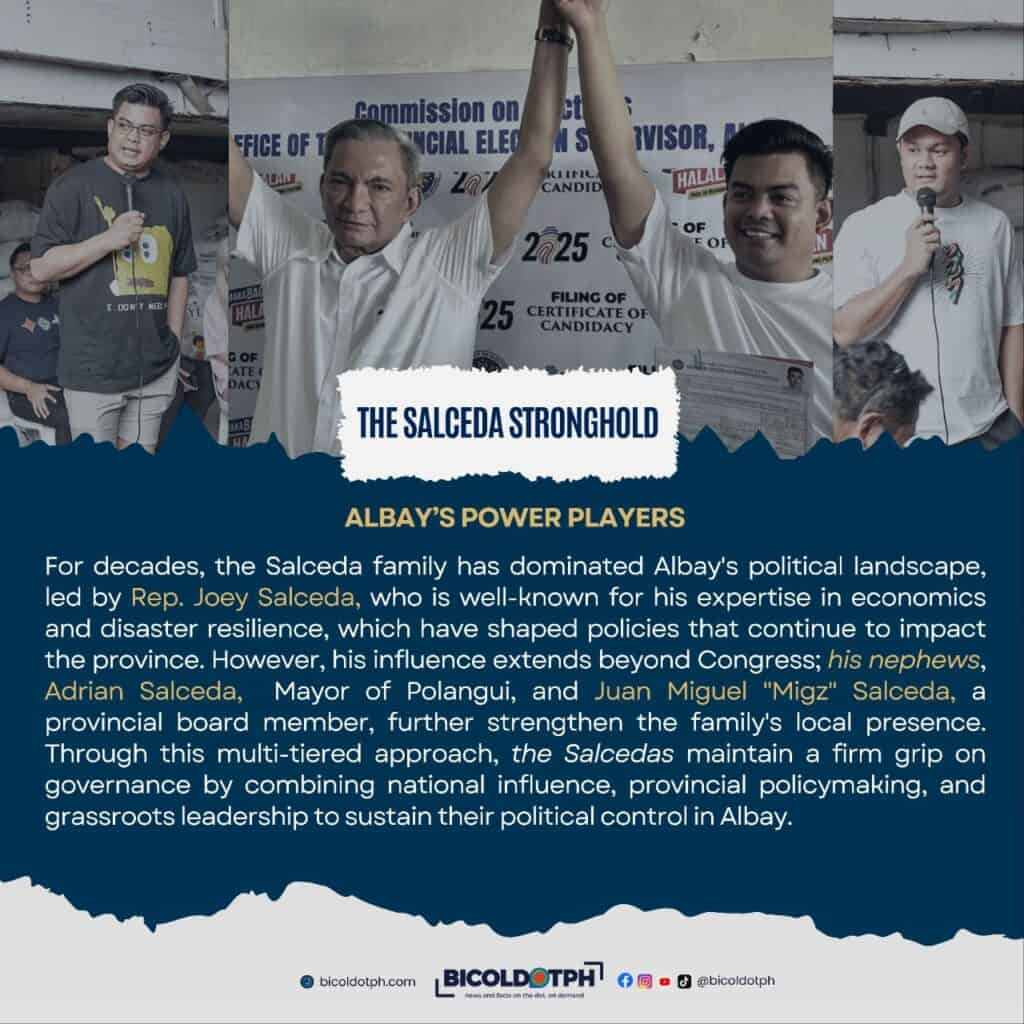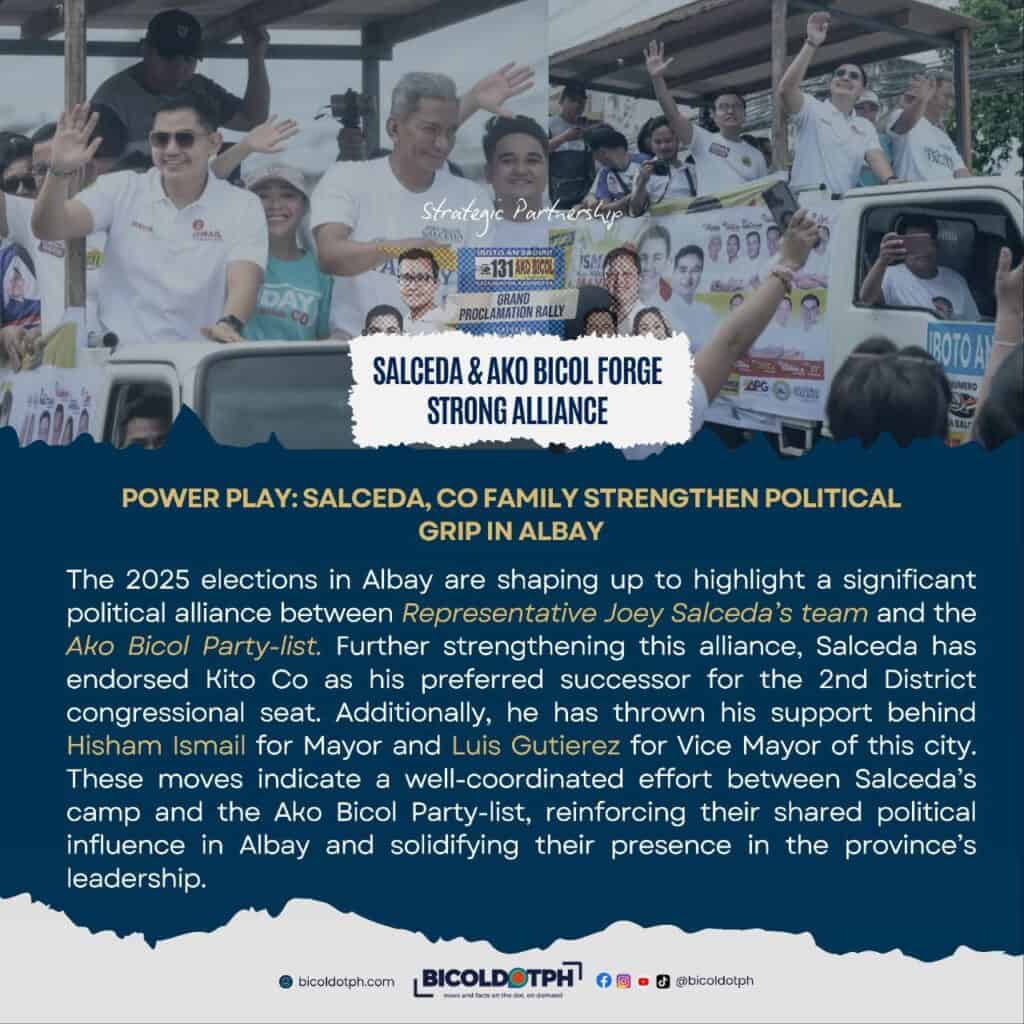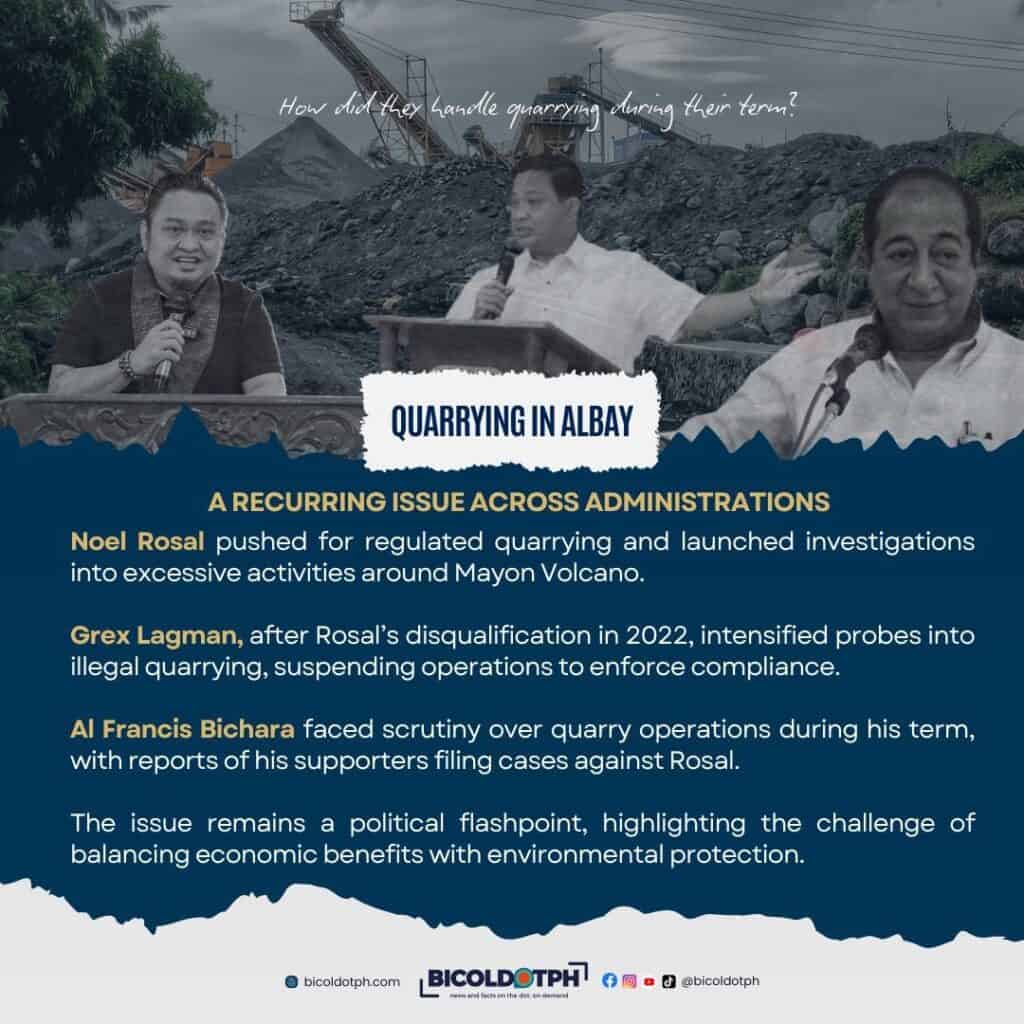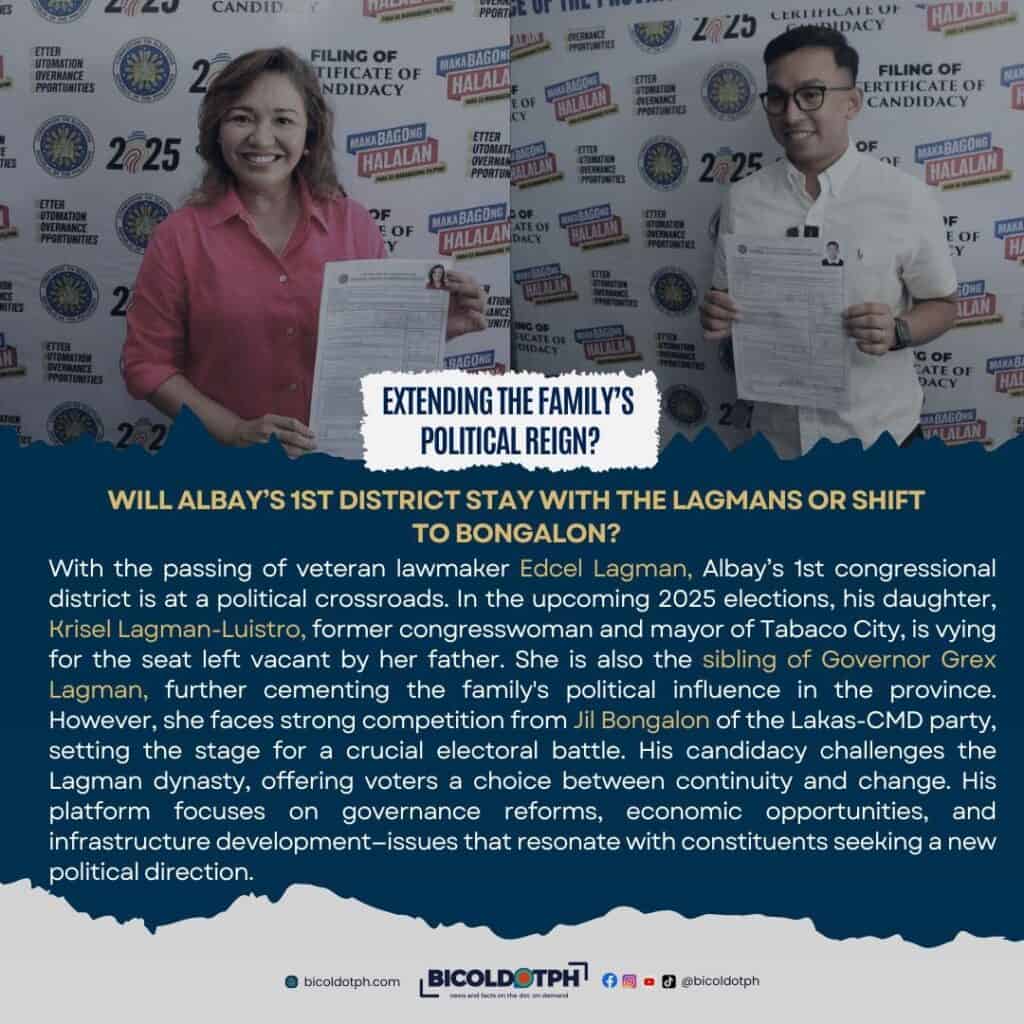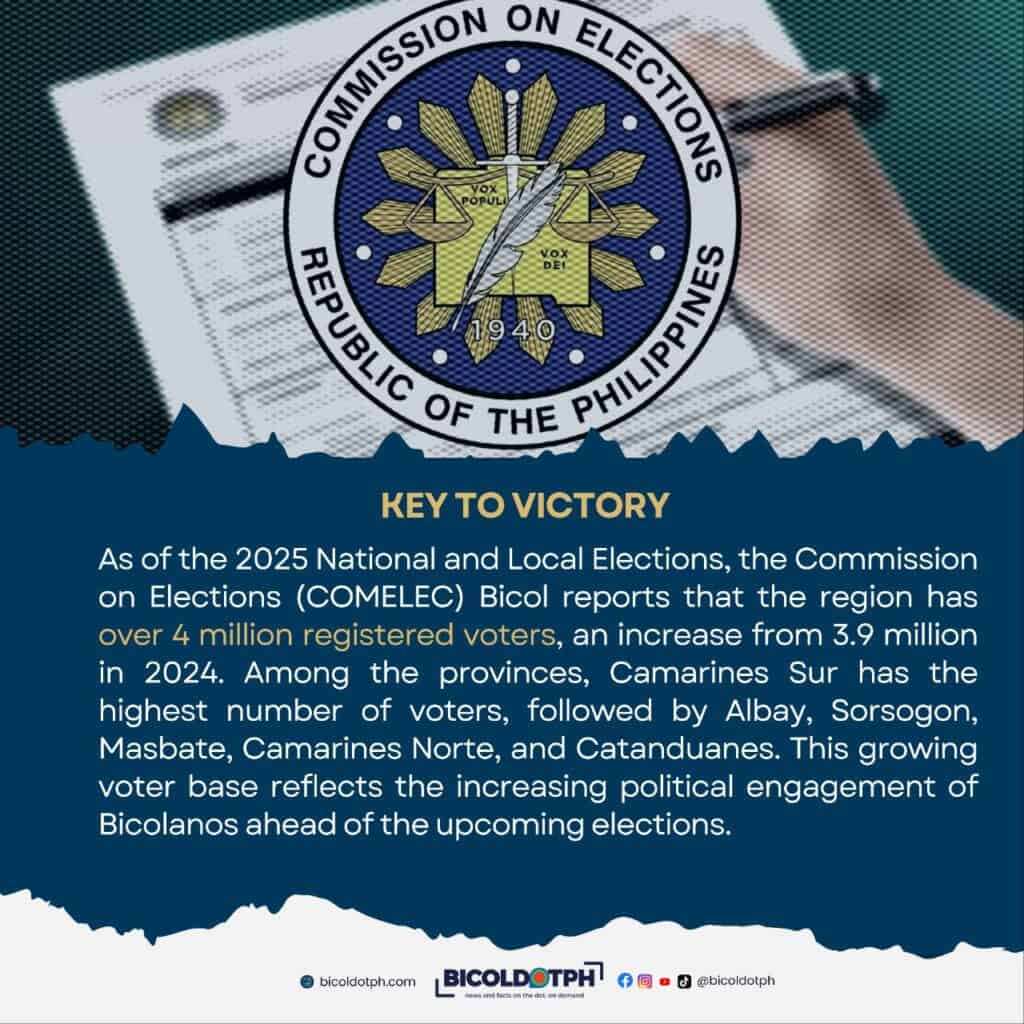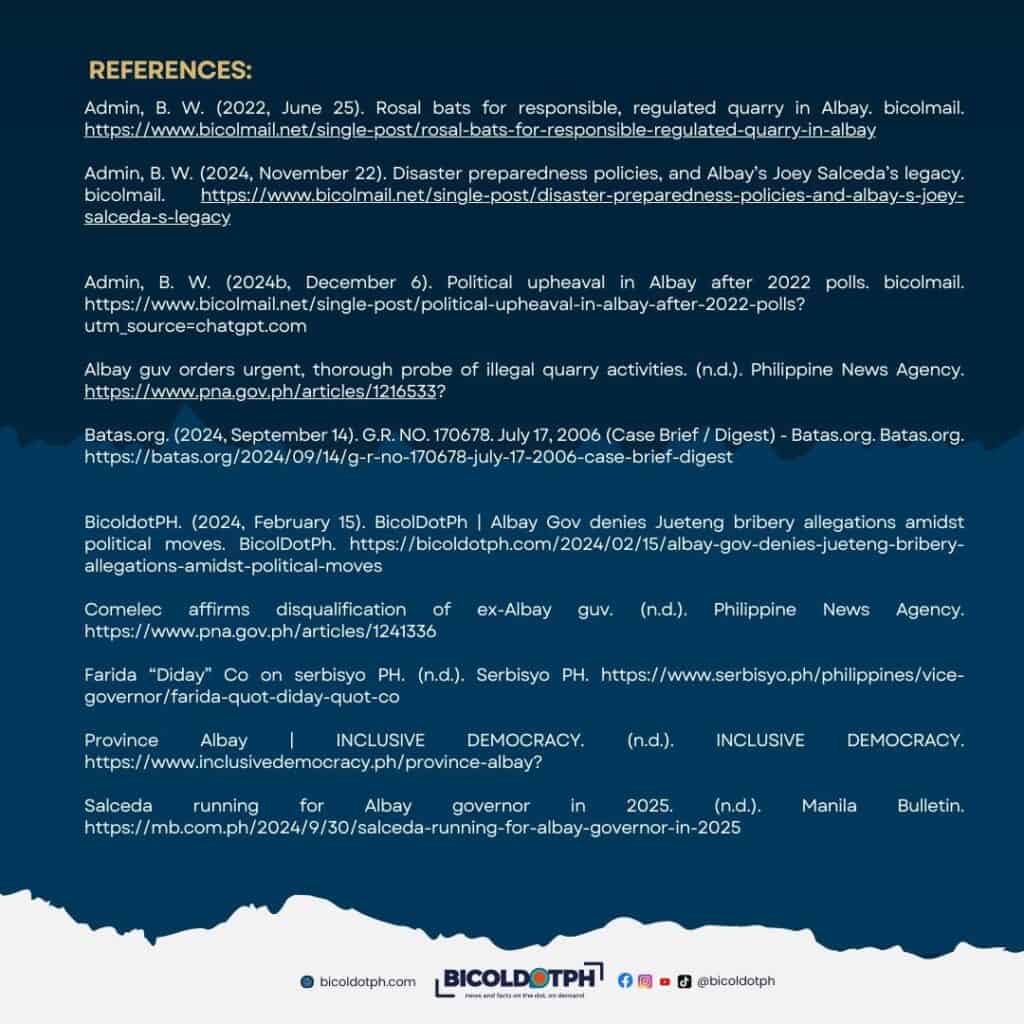As Albay gears up for another election season, the province’s political landscape is once again dominated by familiar names. The Salcedas, the Rosals, the Lagmans, and the Co family continue to wield influence, forging alliances and securing their strongholds. With power at stake, the race is intensifying—but will Albayanos place their trust in the leaders they have known for years, or is it time for a shift toward new leadership?
For decades, political dynasties have shaped the course of Albay’s development, navigating crises and pushing policies that have defined the province’s progress. However, with evolving socio-economic challenges and a demand for fresh perspectives, voters are faced with critical questions. If they choose to stick with traditional leaders, what new ideas or initiatives can these veteran politicians bring to the table to address today’s pressing concerns? On the other hand, if Albayanos opt for change, what innovative solutions and governance styles can emerging leaders offer to steer the province in a new direction?
Beyond personalities and surnames, another pressing issue is accountability. Political alliances play a crucial role in shaping policies, but they also raise concerns about loyalty and vested interests. What assurances can candidates provide that they will govern in Albay’s best interest, prioritizing the needs of the people over party agendas or personal gains?
As the election draws closer, the battle for Albay’s leadership will not just be about names—it will be about vision, action, and the province’s future. Whether Albayanos choose continuity or change, their decision will define the path Albay takes in the years ahead.

